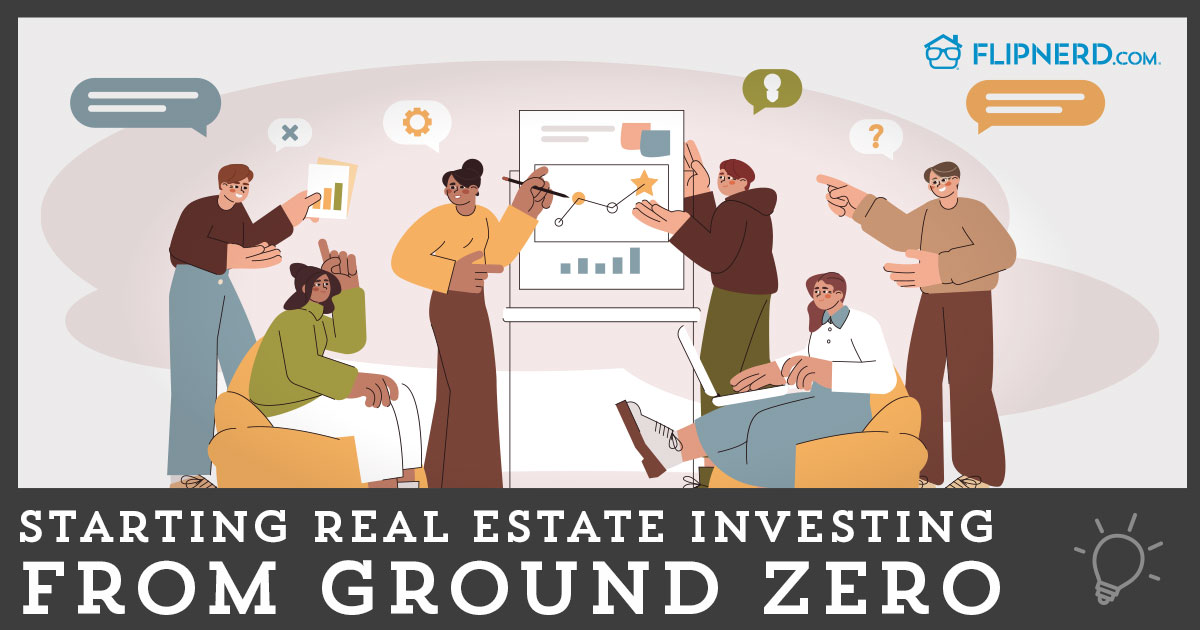For most people, real estate investing is very much an intentional venture.
But for others, the journey is less straightforward. For “accidental landlords,” the decision to become an income property investor is often made in response to a situation –not something that they planned from day one.
One of the most common reasons that people become accidental landlords is a reluctance to sell in a down market. Post-recession, for example, many homeowners who found themselves with underwater mortgages became overnight landlords. Renting out their property provided a viable alternative to going into foreclosure, or selling their home at rock-bottom prices that were less than what was owed on the mortgage.
If you happen to find yourself among the crowd of accidental landlords who have started their journey into property management largely unintentionally –you’re in good company. Many people today are in the exact same position. But with rents on the rise, and demand for rentals increasing across the country –and expected to grow into the foreseeable future, owning rental property can be a great investment –even if it’s one that you didn’t originally have your sights on.
With this in mind let’s explore some of the reasons that people become accidental landlords, and look at a few things that you’ll want to do should you find yourself in the position of having rental property on your hands.
1. An Underwater Mortgage
One of the most common reasons that people become accidental landlords is an underwater mortgage. If you’re hoping to sell, but are unlikely to recoup the remainder of your mortgage through the sale of your home, renting out the property could provide an ideal solution. Renting allows you to generate cash flow, while you continue to pay down the mortgage, and accrue equity in the home. Hopefully, your home will also appreciate in value as the housing market improves. Instead of being forced to default on your mortgage, you’ll be able to survive with your credit completely intact. Then, should you choose to sell your home later on once housing prices have recovered, you’ll be in a great position to do so.
2. Life Changes
Life happens, and having a house sometimes gets in the way. While owning a house can be a great thing, when it’s time to leave town for another job, or if you’re looking to downsize –or upsize, you’ll want to offload the property as soon as possible to avoid the cost of having two mortgages. If this life change happens during a down market, though, you could be facing the dismal prospect of having to sell your property for less than you had hoped. In this situation, renting out the home presents a viable alternative. Renting allows you to generate monthly cash flow while you to wait out the market, saving you from having to accept bottom dollar for your property. As a bonus, if you’re leaving town, but you intend to return to the area again someday, it may make more financial sense to hold onto the home for a few years, and rent it out in the interim, rather than having to go through the expense and hassle of selling only to repurchase again.
3. An Inheritance
Finally, some people end up with investment property through an inheritance. While some of these properties are turn-key operations, complete with paying tenants, often –the property was used as a home and is in need of repairs –and in no condition to sell. In this case, renting out the home will give you some much-needed time and income to make repairs, upgrades, and improvements to the property –allowing you to capture the best price possible when you sell.
Is Being a Landlord the Right Move for You?
If you’re an accidental landlord –the good news is that you could stand to gain tremendously on your investment property. You may not have had the opportunity to choose your investment, but you can still have a significant influence on its success.
Much of your profitability will be dependent on your vacancy rates –so you’ll want to set competitive rates, and ensure that you market your property to a wide pool of prospective tenants. The type of tenants that you end up with will also have a major impact on your profitability, so be sure to establish rental criteria from the start to ensure that only qualified applicants gain access to your property. Take the time to develop screening procedures –in writing, which will allow you to conduct fair and comprehensive background, credit, and reference checks on potential applicants. It’s important that your policies and screening criteria are in compliance with fair housing laws, so consider running your policies by an attorney who specialized in landlord-tenant law to make sure you’re in the clear. You’ll also want to research your obligations as a landlord, and have a working knowledge of tenants’ rights, as well as landlord-tenant law in your area –pay special attention to screening procedures, security deposits, and evictions.
If you plan to relocate, or if you’d rather not spend your free time doing maintenance at the rental, consider hiring a property management company to oversee your investment for you. A property manager will be able to handle everything from tenant sourcing and screening, to lease processing, maintenance, and, when necessary, evictions. They’ll also be able to field phone calls, and handle those dreaded emergency call-outs for repairs in the middle of the night.
Owning rental property can be a great investment opportunity –no matter how you got your start. Set yourself up for success by ensuring that you treat your property like a business, and make decisions that will improve your property’s profitability. Finally, make sure you embark on your journey fully aware of everything that being a landlord entails –and your responsibilities. Then, start renting out your property and enjoy the rewards of cash flow, appreciation, equity, and tax benefits –that income property has to offer.
Are you an “accidental” landlord? Have you started investing in income property? Start the conversation –what’s your biggest challenge as an investor?
Written by: Kevin Ortner









